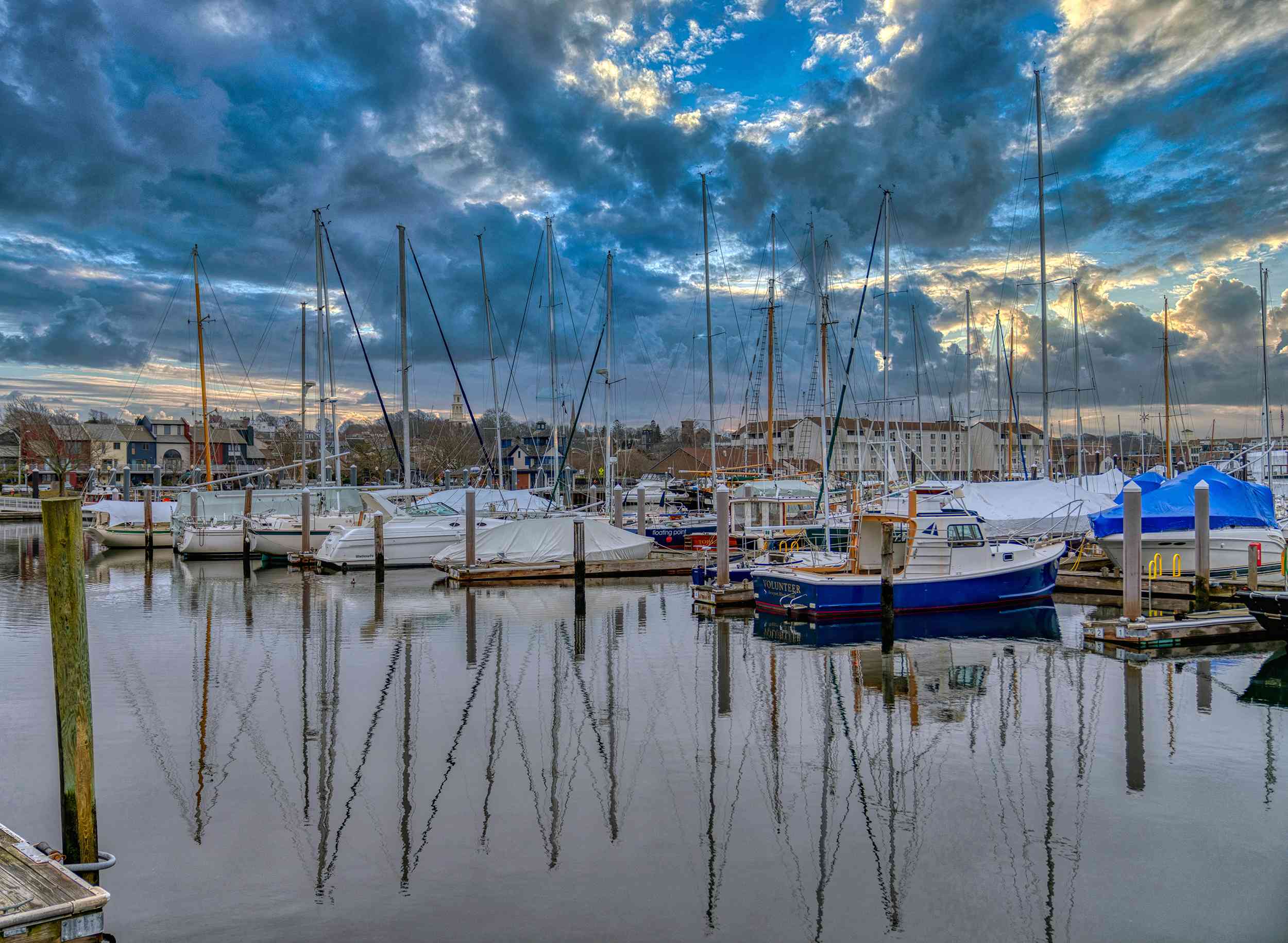Table of Contents
Can You Drink Tap Water in Newport?
Yes, tap water is drinkable.
Tap Safe includes data from many publicly available sources, including the WHO (World Health Organization), CDC (Center for Disease Control), and user submitted databases, but unfortunately there's not enough data about Newport.
To see user submitted ratings of the water quality for Rhode Island, see the "User Submitted Ratings" box on this page.
The Newport Water Division is a Public Water System and frequently tests at numerous sites within the delivery system for Disinfection Byproducts (DBPs). EPA values standards for managing the levels of disinfectants and DBPs in drinking water, including total trihalomethanes (TTHMs). The Environmental Protection Agency (EPA) standard for TTHMs as part of the Stage 1 Disinfectants and Disinfection Byproducts Rule (DBPR) valid January 1, 2002, was 80 parts per billion (ppb) for an annual running average. Compliance for TTHM was based on a running arithmetic average, computed quarterly, of all quarterly standards of the eight (8) samples that Newport Water analyzed. Newport Water Division was required to collect samples for the TTHM analysis during the first two weeks of each quarter.
Many water systems treat water with a chemical disinfectant, such as chlorine, to inactivate pathogens that cause disease. While disinfectants effectively control many harmful microorganisms, they react with the organic and inorganic matter in the water to form DBPs, some of which pose health risks at certain levels.
Some people who drink water containing trihalomethanes over the MCL over many years may experience problems with their liver, kidneys, or central nervous system and may have an increased risk of getting cancer. The public health benefits of chlorine disinfection practices are significant and well recognized. Consequently, one of the most complex questions facing water supply professionals is how to reduce risks from disinfectants and DBPs while providing increased protection against microbial contaminants.

The estimated price of bottled water
$1.61 in USD (1.5-liter)
USER SUBMITTED RATINGS
- Drinking Water Pollution and Inaccessibility
- Water Pollution
- Drinking Water Quality and Accessibility
- Water Quality
The above data is comprised of subjective, user submitted opinions about the water quality and pollution in Newport, measured on a scale from 0% (lowest) to 100% (highest).
Related FAQS
Contaminants
City of Newport
EWG's drinking water quality report shows results of tests conducted by the water utility and provided to the Environmental Working Group by the Rhode Island Department of Health, as well as information from the U.S. EPA Enforcement and Compliance History database (ECHO). For the latest quarter assessed by the U.S. EPA (January 2019 - March 2019), tap water provided by this water utility was in compliance with federal health-based drinking water standards.
Utility details
- Serves: 42000
- Data available: 2012-2017
- Data Source: Surface water
- Total: 35
Contaminants That Exceed Guidelines
- Arsenic
- Benzo[a]pyrene
- Bromodichloromethane
- Chloroform
- Dibromoacetic acid
- Dibromochloromethane
- Dichloroacetic acid
- Haloacetic acids (HAA5)†
- Nitrate
- Total trihalomethanes (TTHMs)†
- Trichloroacetic acid
Other Detected Contaminants
- 1.4-Dioxane
- Barium
- Benzo[a]anthracene
- Benzo[b]fluoranthene
- Benzo[g
- h
- i]perylene
- Benzo[k]fluoranthene
- Bromoform
- Chlorate
- Chlorite
- Chromium (hexavalent)
- Chrysene
- Dacthal
- Di(2-ethylhexyl) phthalate
- Dibenz[a
- h]anthracene
- Indeno[1
- 2
- 3-cd]pyrene
- Isophorone
- Metolachlor
- Monochloroacetic acidPhenanthrene
- Pyrene
- Simazine
- Strontium
- Vanadium
- Vinyl chloride
Reminder
Always take extra precautions, the water may be safe to drink when it leaves the sewage treatment plant but it may pick up pollutants during its way to your tap. We advise that you ask locals or hotel staff about the water quality. Also, note that different cities have different water mineral contents.